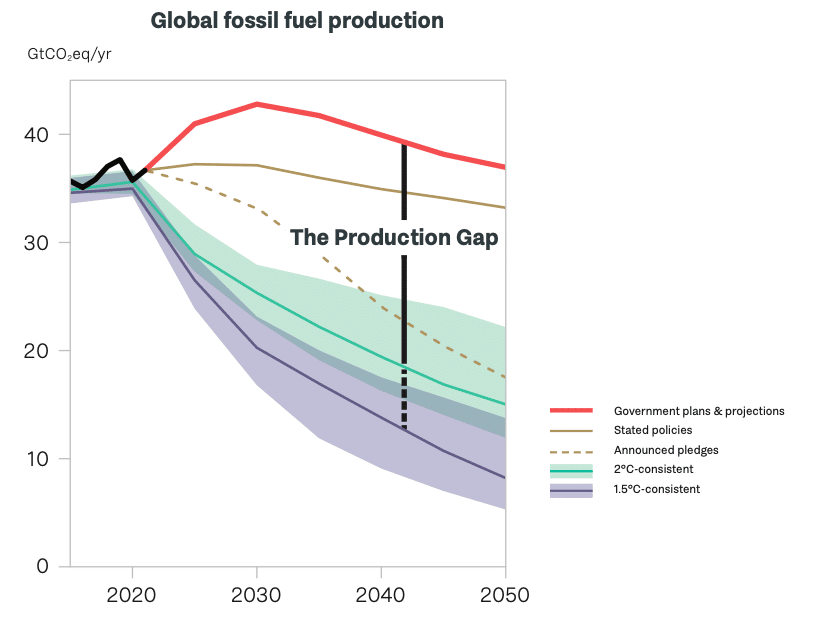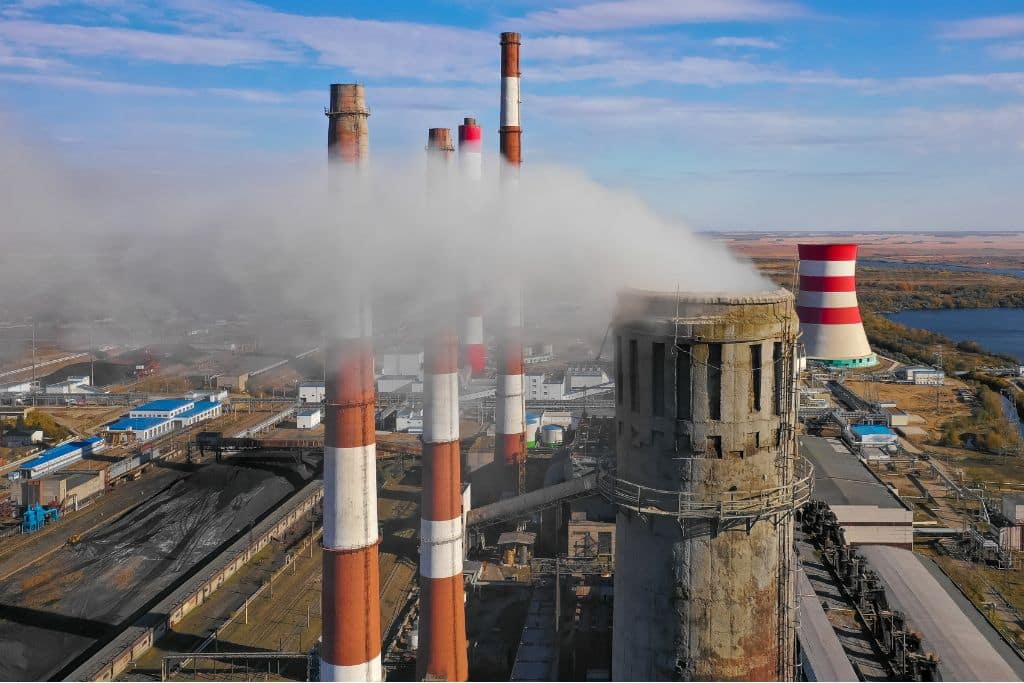The current global production gap poses a serious threat to a well-managed and equitable energy transition, jeopardising efforts to address climate change and promote sustainable development, a new report by UNEP suggests.
—
Despite governments commitments under the Paris Agreement, current government plans and projections indicate a worrisome trajectory of increasing global coal production until 2030 and continued growth in global oil and gas production until at least 2050, contradicting expectations of fossil fuel demand peaking and raising concerns for a sustainable energy transition, a new report has warned.
Published Wednesday by the UN Environmental Programme (UNEP), the Production Gap Report suggests that while major producer countries have pledged to achieve net-zero emissions and take steps to reduce emissions from fossil fuel production, none have made commitments to decrease coal, oil, and gas production in alignment with the goal of limiting global warming to 1.5C above pre-industrial levels. Instead, current production plans indicate that governments will generate 110% more fossil fuels at the end of the current century than the amount required to keep on track with the Paris target.
“We cannot address climate catastrophe without tackling its root cause: fossil fuel dependence. Fossil fuel emissions are already causing climate chaos which is devastating lives and livelihoods, and we’re on course for far worse,” UN Secretary-General António Guterres said in a statement following the report’s release.
Fossil fuels – coal, oil and gas – are by far the largest contributor to global warming, accounting for over 75% of global greenhouse gas emissions and nearly 90% of all carbon dioxide emissions.
“Leaders must act now to save humanity from the worst impacts of climate chaos, and profit from the extraordinary benefits of renewable energy. That means ending our fossil fuel addiction by shrinking supply, driving down demand, and accelerating the renewables revolution, as part of a just transition,” Guterres added.
You might also like: Renewables Will Dominate World’s Electricity Demand Through 2025, IEA Report Says
Since 2019, the UN environmental body has been monitoring the fossil fuel production gap – the disparity between governments’ planned and projected fossil fuel production and the global production required to stay within the temperature limits of 1.5C or 2C, and has found that the gap “remains large and expands over time.”

The fossil fuel production gap. Image: UNEP.
The new UNEP report provides newly expanded country profiles for 20 major producer nations across all continents – including China, the US, the United Arab Emirates, Qatar, India, Nigeria, and Germany – the majority of which have made net-zero pledges and signed onto the COP26 Global Methane Pledge and the Glasgow Statement on international finance, committing to shift government-backed international finance away from fossil fuels and instead to prioritise renewable energy.
“While 17 of the 20 countries profiled have pledged to achieve net-zero emissions, and many have launched initiatives to reduce emissions from fossil fuel production activities, most continue to promote, subsidize, support, and plan on the expansion of fossil fuel production,” the UNEP report reads. “None have committed to reduce coal, oil, and gas production in line with limiting warming to 1.5°C.”

Production and consumption of fossil fuels have surged to unprecedented levels, with global carbon dioxide (CO2) emissions, primarily originating from fossil fuels, reaching record highs this year. According to a study published in Nature last week, if these emissions persist at the current rate, the world risks surpassing the remaining emissions budget necessary to have a 50% chance of limiting long-term warming to 1.5°C in six years’ time, rather than in the mid 2030s as previously predicted.
The report includes recommendations to bring the world on track with the Paris goal. Among them is a complete cessation of coal production and usage by 2040, along with a substantial 75% reduction in oil and gas production and consumption by 2050 compared to 2020 levels, in light of the uncertainties and potential pitfalls associated with carbon capture and storage and carbon dioxide removal.
Moreover, the report argues that governments possessing greater capabilities to shift away from fossil fuels should strive for more ambitious reductions and extend support to countries with limited resources to facilitate their transition processes.
“Governments’ plans to expand fossil fuel production are undermining the energy transition needed to achieve net-zero emissions, throwing humanity’s future into question,” said Inger Andersen, Executive Director of UNEP. “Powering economies with clean and efficient energy is the only way to end energy poverty and bring down emissions at the same time.”
“Starting at COP28, nations must unite behind a managed and equitable phase-out of coal, oil and gas — to ease the turbulence ahead and benefit every person on this planet,” she added.
Michael Lazarus, a lead author on the UNEP report and SEI US Centre Director, said COP28 could be the “pivotal moment” where the world finally commits to phasing out fossil fuel production and a time when governments with the greatest resources to fuel the green transition recognise their responsibility and begin providing the finance necessary to support poor and climate-vulnerable countries.
You might also like: What Can We Expect From COP28, And What Must Happen?


















